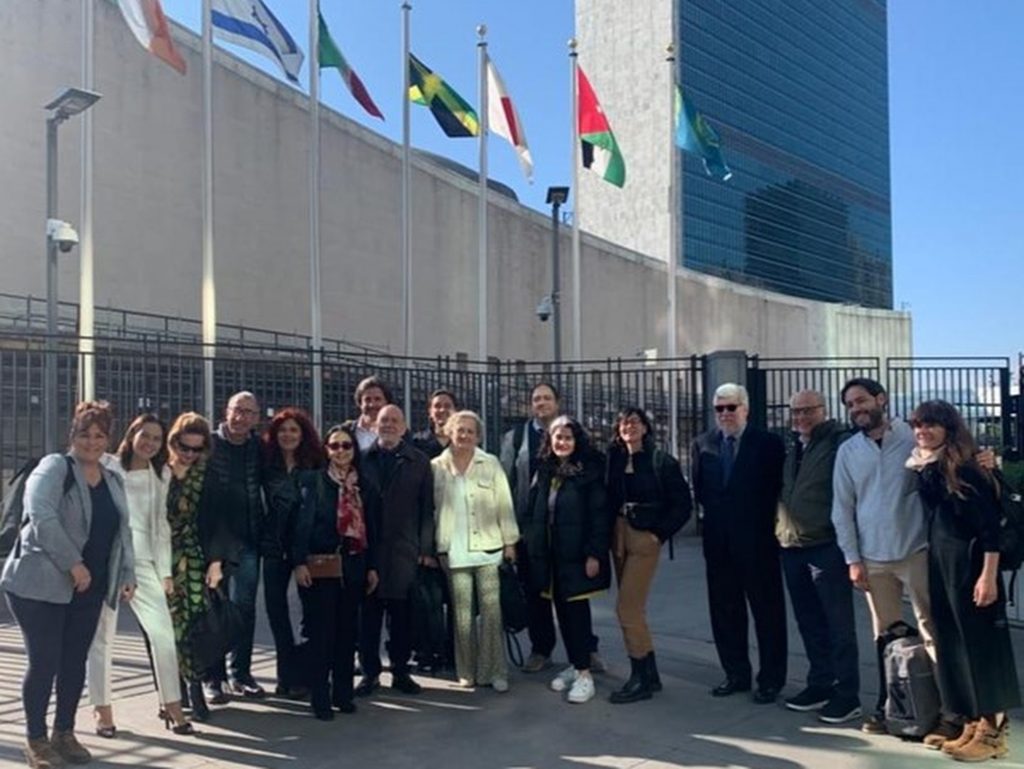25/04/2023
The URV is taking part in the United Nations Earth Assembly
The work done by the universities has been fundamental for Spain to be the first European Union country to recognize nature as a subject of law

The work done by the universities has been fundamental for Spain to be the first European Union country to recognize nature as a subject of law
Susana Borràs, lecturer of the Department of Public Law and member of the United Nations platform “Harmony with Nature”, is representing the Universitat Rovira i Virgili in the preparatory meetings of the Earth Assembly that the UN will hold on 22 April, 2024, coinciding with Mother Earth Day. The aim is to improve harmony with nature, accelerate climate action and implement the UN’s own Biodiversity Agreement to ensure that 30% of our planet’s land and water are protected by 2030.
In addition to the URV, eight Spanish universities are taking part with researchers from a variety of disciplines. Their work has been fundamental for Spain to become the first country in the European Union to recognize the intrinsic value of nature by conferring legal personality and rights on the Mar Menor. Spain is a reference not only for other countries attending this United Nations meeting, but also an inspiring example for other forms of governance in areas with problematical externalities arising from abusive economic practices. This is the case in many natural areas such as Doñana, Albufera and the Ebro delta and river basin.
With an eye on protecting 30% of the planet’s land and water, UN Secretary-General António Guterres has urged people to “raise your voice and demand that leaders make peace with nature”, and on Monday, 24 April, the “Interactive Dialogue during the commemoration of International Mother Earth Day” was held. In accordance with Resolution 77/169 of the General Assembly, of December 14, 2022, this interactive dialogue has been mandated to debate the possibility of convening a high-level meeting and assess its scope.
Provisionally entitled “Earth Assembly,” it will be held on 22 April, 2024 so that “the evolving non-anthropocentric or Earth-centered paradigm continues to strengthen multilateralism through the discussion of alternative holistic approaches based on diverse worldviews that can contribute to the implementation of the 2030 Agenda for Sustainable Development and more,” explain researchers from Spanish universities participating in the meeting. As a member of the United Nations Platform “Harmony with Nature”, Susana Borràs will take part in this official meeting at the United Nations headquarters in New York, and also in the preparatory meetings.
Nature as a subject of law, not as a stage for economic practices
This Monday she took part in one of these interactive dialogues, which, for the past 15 years, have facilitated dialogue about harmony with nature, from the perspective of both science and the traditional worldviews of indigenous peoples, among other knowledge systems. The Harmony with Nature interactive dialogues have contributed to promote multilateralism, a systemic vision of the economy as part of the ecosphere and an increasing awareness that it is imperative to conceive Nature and its elements as rights-bearing subjects, not as a mere stage on which to engage in economic practices.
These dialogues have allowed policy makers to learn more about methodologies and success stories on community management of the commons, economic justice or meeting the needs of ecosystems and people in terms of living well or the well-being of living beings and ecosystems. The objective is to move beyond the traditional anthropocentric vision of sustainable development and towards ecocentric conceptions.
Thanks to the coordination of the United Nations Platform “Harmony with Nature”, this session of the Dialogue brings together representatives of several Spanish universities: the University of Murcia, the University of Valencia, the Autonomous University of Madrid, the University of Alicante, the University of Malaga, the University of Castilla-La Mancha, the University of the Basque Country, the University Rey Juan Carlos and the Universitat Rovira i Virgili. The teaching and research staff come from various disciplines – from economics, sociology, philosophy and law – all of which recognise the intrinsic value of nature.
The session held in New York with the participation of Spanish universities was attended by the president of the United Nations General Assembly Csaba Kőrösi, the president of Bolivia, Luis Arce; the vice president of the Spanish government and minister for Ecological Transition and the Demographic Challenge, Teresa Ribera; Sonia Guajajara, minister for Indigenous People of Brazil; Suleiman Adamu, minister of Water Resources of Nigeria, and Le Junhua, UN deputy secretary general for Economic and Social Affairs.
